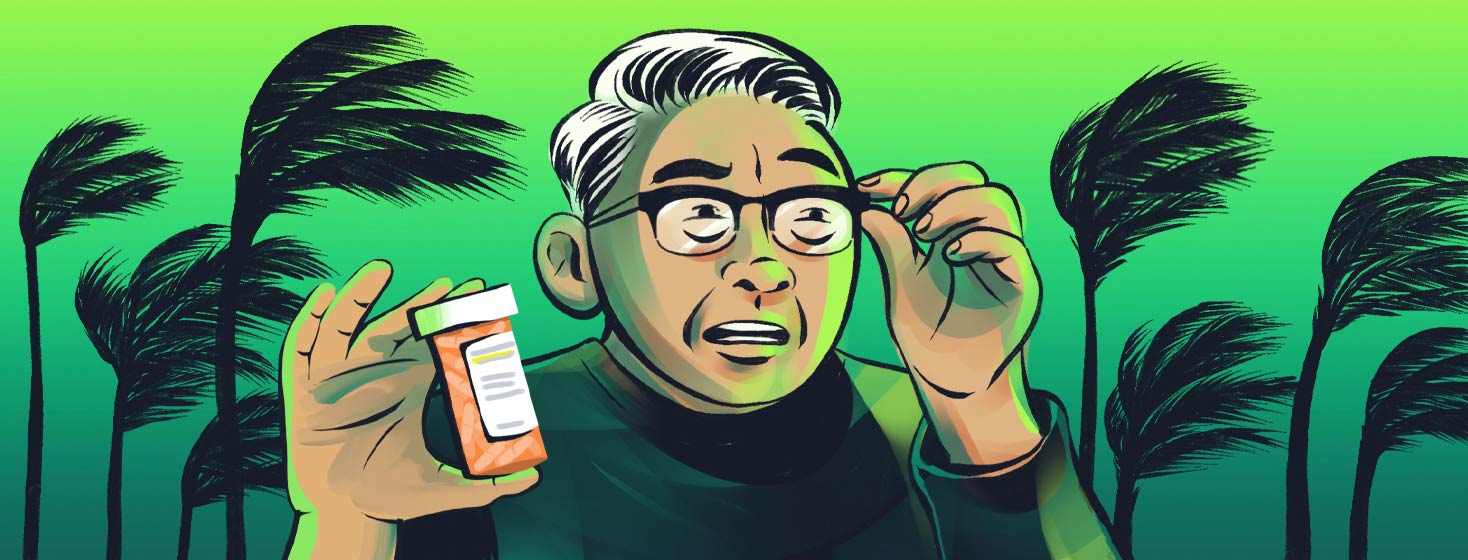In the Eye of the Storm: After Round One of ADT, and Before the Next Round Starts
Last December I updated my story. I was three months into my ADT (androgen deprivation therapy) and having the anticipated side effects of hot flashes and loss of libido. My PSA had dropped from 0.92, just before starting the ADT, to less than 0.008, which is considered non-detectable.
I ended that article with a section on "what comes next." Some of my questions have now been answered, and some are still awaiting resolution.
A concerning rise in my PSA levels
I finished 5 months of ADT in January and started the observation period. My urologist agreed with observation and ordered a PSA and a testosterone monthly to be able to chart any rise in my PSA. Sure enough, within a month of stopping my drug treatment with Relugolix (Orgovyx), the testosterone rebounded and so did my PSA.
After a month the PSA was 0.01. Then 6 weeks later it rose to 0.03. More recently in May, 4 months off ADT, my PSA was 0.13. My testosterone rebounded into the 500s within a month off the ADT, which is a mixed blessing. My hot flashes disappeared, and my libido started to rebound. However, it appears the cancer is starting to feast on the renewed testosterone!
These fairly rapid increases in my PSA have brought a realization that, at a minimum, I'll need to restart my ADT therapy soon. I have a long-anticipated trip to Europe and have committed to rechecking the PSA as soon as I return in late July. At that point, I anticipate another substantial jump in my PSA and almost certainly another PSMA to determine if my metastatic lung node has enlarged, and if these are any new visible metastases.
Worried about how more treatment will affect me
That was the technical part of my story, but being a doctor doesn't mean I'm not also a scared but hopeful patient. Despite writing about my journey and serving as a facilitator for a prostate cancer support group, my anxiety level has recently increased. I've found that having access to considerable research is both a blessing and a curse. I'm spending more time wondering how more treatments will affect me.
Will more treatment increase my cardiovascular risks and sap my strength? If there are more metastases, should they be removed or irradiated? How long can I delay in restarting ADT without giving the cancer more of a head start? Part of this, I'm sure, is my personality. As a physician, I was always in control. Now that control is no longer fully mine, I find myself in the hands of a disease that is in the driver's seat.
More and more this journey seems like a war. Each repeat PSA carries with it the sense of one more battle in this ongoing struggle. Plans get made and remade with each new piece of information; and all the while, I have to remind myself not to obsess about the cancer and grief, and to live life fully and as freely as possible. That is where my friends and family, my support group of cancer survivors, and my ability to unload my story in writing combine to be my weapons in this never-ending war.
Gaining perspective
I like to think that one of the positives that comes from a 27-year battle with this disease is perspective. It is important for all of us to realize how lucky we are to have a whole toolbox of new diagnostic and tracking techniques and many more treatment modalities to help us extend the length and quality of our lives.
Each added treatment will make demands on our bodies, our muscles, our bones and our wallets. But hopefully, all of us will be able to face these demands by continuing to exercise both mind and body and by never failing to be grateful for each additional year of quality life.
The reason I agreed to host a forum on the emotional, social, and sexual aspects of prostate cancer is because I have spent over 1/3 of my life living with this wily enemy. I have learned a lot and am eager to share. Perhaps the most important lesson has been that I don't have to face this alone. Please feel free to visit my forum and share your thoughts, feelings, fears, and joys!

Join the conversation